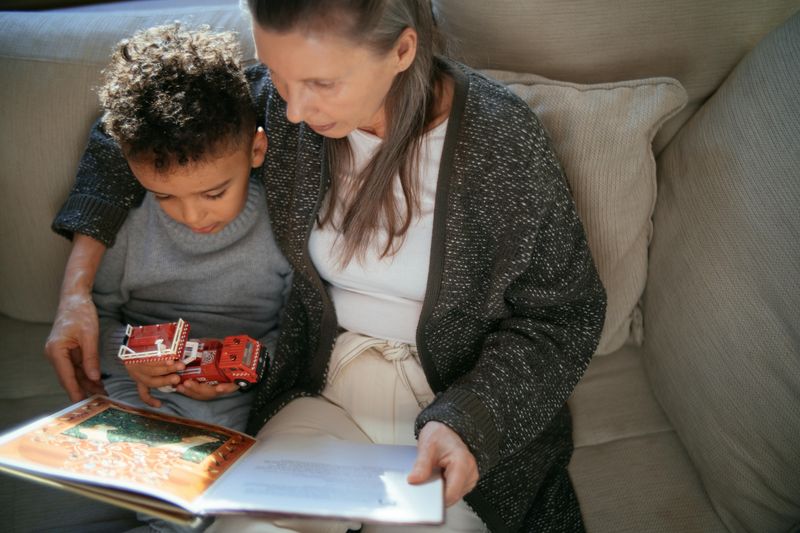28 Common Regrets People Have About Their Divorce

Divorce marks one of life’s most challenging transitions, often leaving emotional scars alongside the legal paperwork. Many who’ve walked this difficult path look back with mixed feelings about their decisions and actions. Understanding these common regrets can help those considering or going through divorce avoid similar pitfalls and find healthier ways to navigate this life-changing process.
Rushing into divorce without trying counseling

Many former couples wish they’d given therapy a fair shot before calling it quits. Marriage counseling might have provided tools to work through problems that seemed insurmountable at the time.
Professional guidance often reveals communication patterns that couples can’t see on their own. Some divorced individuals later discover their problems weren’t unique or unfixable—just poorly managed.
The structured environment of counseling creates a safe space for difficult conversations that might otherwise turn into arguments. Looking back, many regret skipping this step and wonder if their marriage could have been saved.
Not considering the financial aftermath

For many, the real financial shock of divorce comes after it’s finalized. Legal expenses and the cost of living separately often create more strain than expected.
Living on a single income forces lifestyle adjustments that can feel punishing. Former couples often regret not creating a detailed post-divorce budget or consulting financial advisors before proceeding.
Tax implications, insurance changes, and retirement account divisions frequently catch people by surprise. Many wish they’d taken time to fully understand the long-term economic impact instead of focusing solely on the emotional aspects of separation.
Fighting over insignificant possessions

What felt like a must-win battle over furniture often looks foolish in hindsight. Former spouses commonly regret how much emotional energy they poured into material disputes.
Emotional attachment to objects becomes magnified during divorce, transforming ordinary possessions into symbols of the relationship. Years later, many realize these items weren’t worth the legal fees or emotional toll.
The kitchen appliances and furniture that once seemed worth battling for often end up replaced or forgotten. With perspective, divorced individuals frequently wish they’d focused more on emotional healing than winning the war over stuff.
Using children as emotional pawns

Parents often recognize too late the damage caused by putting kids in the middle. Children become unwilling messengers, therapists, or weapons in a battle between adults who once loved each other.
The emotional burden placed on young shoulders leaves lasting scars. Former spouses frequently express deep regret about venting frustrations about their ex in front of their children or asking kids to take sides.
Years later, strained relationships with adult children become painful reminders of poor boundaries during the divorce. Many wish they’d worked harder to keep their personal feelings separate from their parenting responsibilities.
Letting anger drive decision-making

What feels like justice in the heat of the moment can feel like a mistake in hindsight. Rash, emotion-driven choices during divorce often lead to long-term consequences.
The desire for revenge or punishment often leads to prolonged legal battles that drain emotional and financial resources. Former spouses frequently wish they’d taken time to cool down before making important decisions about property, custody, or finances.
The satisfaction of “winning” particular arguments fades quickly, while the consequences of anger-driven choices can last decades. Many eventually realize that keeping emotions in check would have resulted in better outcomes for everyone involved.
Not taking enough time for self-reflection

Jumping from marriage straight into divorce without examining personal contributions to relationship problems creates a blind spot. Many divorced individuals later recognize patterns they carried into subsequent relationships.
Taking responsibility for one’s role in the marriage breakdown proves crucial for personal growth. Former spouses often wish they’d spent more time in self-reflection or individual therapy to understand their part in the dynamic.
Without this introspection, people frequently repeat the same mistakes in new relationships. The regret centers not on the divorce itself but on missing the opportunity for valuable self-awareness that could have led to healthier future connections.
Badmouthing ex-spouse to friends and family

That quick release of frustration through venting can lead to long-term regret. Speaking poorly about an ex can damage co-parenting dynamics and make future interactions awkward.
Friends and family remember these stories long after former spouses have made peace. Many divorced people regret putting mutual friends in uncomfortable positions or damaging relationships with in-laws who might remain important to their children.
The social ripple effects of divorce extend beyond the couple. Years later, many wish they’d maintained more dignity and privacy during the emotional turmoil instead of recruiting allies in a battle that eventually ends.
Neglecting to update legal documents

Forgetting about wills, insurance policies, and retirement accounts creates unexpected problems down the road. Many divorced individuals are shocked to discover their ex-spouse remains their beneficiary years after separation.
Estate planning documents, healthcare directives, and emergency contacts often go unrevised. Former couples frequently express regret about not immediately updating these important legal papers after finalizing their divorce.
The oversight can have serious consequences if something happens before documents are changed. Many wish they’d created a comprehensive checklist of all legal documents requiring updates instead of assuming the divorce decree handled everything.
Giving up career opportunities during marriage

Career sacrifices made during marriage often become sources of regret after divorce. Staying home with children or relocating for a spouse’s job can leave people financially vulnerable when the relationship ends.
Gaps in work history or outdated skills make re-entering the workforce challenging. Many divorced individuals wish they’d maintained some career continuity or pursued education during their marriage.
The loss of financial independence hits hard during separation. Former spouses frequently regret not having insisted on arrangements that protected their professional development, even while prioritizing family needs.
Settling for a bad agreement to end things quickly

In an effort to end the emotional strain, some people settle too quickly during divorce. Later, they realize they gave up too much just to get it over with.
Short-term relief comes at the cost of long-term financial security. Former spouses often regret not consulting financial advisors or fighting harder for equitable division of assets and debts.
The full impact of an unbalanced agreement might not become apparent for years. With hindsight, many wish they’d endured the temporary discomfort of negotiation rather than living with permanent consequences of a poor settlement.
Oversharing on social media

The digital footprint of divorce drama follows people long after the separation. Public venting, relationship status updates, and photos with new partners can inflame tensions and create permanent records of temporary emotions.
Children eventually discover these posts, as do potential employers and future partners. Many divorced individuals express deep regret about impulsive social media activity during their separation.
What seems like justified emotional expression in the moment often becomes embarrassing later. Former spouses frequently wish they’d kept their divorce proceedings private instead of broadcasting their feelings to their entire network.
Not seeking emotional support

Trying to handle divorce alone often leads to prolonged healing. Many regret not leaning on friends, family, or support groups during this challenging transition.
Pride or shame prevents some from reaching out when they need help most. Former spouses frequently wish they’d been more vulnerable about their struggles instead of presenting a false image of having everything under control.
Professional support through therapy or counseling provides valuable tools for processing grief. Looking back, many divorced individuals realize they could have recovered more quickly and made better decisions if they’d built a stronger emotional support system.
Failing to establish clear boundaries after separation

Once the romantic relationship ends, the dynamics have to change—especially for co-parents. Without clear boundaries on communication and decision-making, things often get messy or emotionally charged.
Blurred lines lead to confusion and renewed conflict. Former couples often wish they’d created explicit agreements about everything from holiday schedules to how to handle mutual friends.
Without boundaries, old relationship patterns continue causing pain. With hindsight, many divorced individuals recognize they should have invested time in defining a new relationship framework rather than assuming boundaries would naturally fall into place.
Hiding assets during proceedings

Lying during divorce can backfire both legally and personally. Many later regret hiding assets, income, or investments when it ends up costing them more in the long run.
When deception is discovered, it often results in harsher judgments and damaged credibility with the court. Former spouses frequently wish they’d been transparent from the beginning rather than risking their reputation and legal standing.
The stress of maintaining lies adds unnecessary pressure to an already difficult situation. Looking back, many acknowledge that the potential financial gain wasn’t worth the integrity lost or the example set for their children.
Ignoring warning signs before marriage

Looking back, many divorced individuals admit the warning signs were there all along. Compatibility issues, poor communication, or misaligned values often showed up early—but were overlooked.
The excitement of romance often overshadows important indicators of future trouble. Former spouses frequently express regret about dismissing concerns raised by friends and family or ignoring their own intuition.
Premarital counseling or longer engagements might have revealed deal-breaking issues. With the wisdom of experience, many wish they’d paid closer attention to early relationship patterns instead of assuming problems would resolve themselves after marriage.
Not getting professional legal advice

DIY divorce often leads to overlooked details with lasting consequences. Many regret trying to save money by handling legal matters without proper representation.
Complex issues like retirement accounts, property division, and child support benefit from expert guidance. Former spouses frequently wish they’d consulted with attorneys even if they ultimately chose mediation or collaborative divorce.
Legal mistakes can be difficult or impossible to correct after the divorce is finalized. Looking back, many recognize that professional legal fees would have been worth the investment to protect their long-term interests.
Making major life changes too quickly after divorce

After divorce, the urge to start fresh can lead to sudden moves, career shifts, or new relationships. Some later regret not pausing to settle emotionally first.
Emotional vulnerability can cloud judgment during this transition period. Former spouses often wish they’d waited until they felt more stable before relocating or making other significant choices.
Children especially need consistency during family restructuring. With hindsight, many divorced individuals recognize they should have focused on creating a new normal before introducing more change into their lives or their children’s routines.
Neglecting physical health during stress

When emotions run high, self-care often falls low on the list. Divorce can lead to skipped workouts, junk food habits, and sleepless nights that only deepen the exhaustion.
Self-care takes a backseat to legal proceedings and emotional processing. Many former spouses regret not prioritizing their physical wellbeing during this challenging time.
The body keeps score of emotional trauma, manifesting in health problems that could have been minimized. Looking back, divorced individuals frequently wish they’d maintained basic health routines to better weather the emotional storm.
Failing to protect credit scores and financial identity

Keeping joint finances active after separation can lead to regrets. Many people wish they’d cut financial ties with their former spouse sooner.
Credit scores suffer when ex-partners miss payments on joint obligations. Former couples often wish they’d been more proactive about closing shared accounts, removing authorized users from credit cards, and refinancing joint loans.
Financial entanglement creates vulnerability even after legal ties are cut. With hindsight, divorced individuals recognize they should have prioritized financial separation alongside the legal process instead of assuming their ex would handle shared responsibilities appropriately.
Keeping the marital home when it wasn’t affordable

Emotional attachment to the family home sometimes leads to impractical financial decisions. Many regret fighting to keep a house they couldn’t realistically afford on a single income.
The comfort of staying in familiar surroundings comes with maintenance costs, mortgage payments, and taxes designed for two incomes. Former spouses frequently wish they’d done a more careful analysis of post-divorce housing options.
Struggling to maintain an unaffordable property adds financial stress to an already difficult situation. Looking back, many divorced individuals acknowledge they would have recovered faster by downsizing to something manageable rather than stretching to preserve the status quo.
Choosing the wrong divorce process

Not all divorces require scorched-earth litigation. Many regret jumping straight to adversarial court proceedings without exploring mediation, collaborative divorce, or other less combative options.
The process chosen shapes the outcome and future relationship. Former spouses often wish they’d researched different approaches and selected one appropriate for their specific situation.
Litigation increases costs and hostility while reducing control over the final settlement. Looking back, divorced individuals frequently recognize that their choice of process had as much impact on their experience as the divorce itself.
Underestimating the emotional impact on themselves

Even when divorce is a conscious decision, grief can still be overwhelming. Many experience waves of loss, failure, and rejection they didn’t anticipate.
Expecting to bounce back quickly leads to disappointment when healing takes longer than anticipated. Many former spouses regret not giving themselves permission to fully experience and process their emotions.
The end of a marriage represents multiple losses—from daily routines to future dreams. With hindsight, divorced individuals often wish they’d approached their emotional recovery with more patience and self-compassion instead of attempting to suppress or rush through difficult feelings.
Involving new partners too quickly

Rebound relationships often complicate an already complex situation. Many regret introducing new romantic partners to their children too soon after separation.
The transition period requires focus on healing and establishing new family dynamics. Former spouses frequently wish they’d established clear boundaries about when and how to integrate new relationships into their post-divorce life.
Children need time to adjust before meeting parents’ new partners. Looking back, divorced individuals recognize that patience with this aspect of moving forward would have created healthier transitions for everyone involved, especially their children.
Not insisting on transparency in the divorce process

Feeling intimidated by legal proceedings leads some to passively accept whatever their attorney or spouse proposes. Many regret not asking more questions or demanding clearer explanations of their options.
Understanding the long-term implications of decisions requires complete information. Former spouses often wish they’d been more assertive about requesting financial disclosures or explanations of legal terminology.
The consequences of uninformed choices last long after divorce papers are signed. With experience, divorced individuals learn that being an active participant in their own divorce process, rather than a bystander, leads to more satisfactory outcomes.
Not considering tax implications of asset division

All assets aren’t created equal when tax time arrives. Many regret focusing only on dollar values without considering the tax consequences of different property divisions.
Retirement accounts, investment portfolios, and real estate each come with unique tax implications. Former spouses frequently wish they’d consulted tax professionals before finalizing their settlement agreements.
What seems like an equal split on paper might prove very unequal after taxes are paid. Looking back, divorced individuals often recognize that understanding the tax aspects of their settlement would have led to more truly equitable divisions and fewer financial surprises down the road.
Failing to address shared digital accounts and passwords

Digital entanglement outlasts marriages in surprising ways. Many regret not immediately changing passwords, removing payment information, and separating streaming services, cloud storage, and other shared digital assets.
Privacy becomes important after separation, yet forgotten digital connections create unexpected vulnerabilities. Former spouses often wish they’d created a comprehensive digital separation plan alongside their legal divorce.
Shared photo libraries, family subscription plans, and joint email accounts for household matters create ongoing connections that can become problematic. With hindsight, divorced individuals recognize that digital separation deserves as much attention as physical and financial separation.
Giving up too easily when reconciliation might have worked

Some marriages end before all options are truly exhausted. A percentage of divorced individuals regret not trying harder to save their relationship, especially when the problems weren’t abuse or infidelity.
Time and perspective sometimes reveal that the issues that seemed insurmountable were actually workable. Former spouses occasionally wish they’d given more weight to what was working in the relationship rather than focusing exclusively on problems.
The grass isn’t always greener after divorce. Looking back, some divorced people wonder if more patience, better communication tools, or different approaches to common challenges might have led to relationship renewal rather than termination.
Not considering the impact on extended family relationships

Separating from a spouse can also mean losing the extended family network. In-laws who were once close can become distant, and many regret that loss.
Extended family members often feel forced to take sides. Former spouses frequently wish they’d been more proactive about maintaining appropriate relationships with their ex’s family, especially when those relationships were important to their children.
Holiday gatherings and family traditions change dramatically after divorce. With time, divorced individuals recognize the value of these extended connections and regret not having established clear intentions about continuing certain relationships despite the marriage ending.

Comments
Loading…